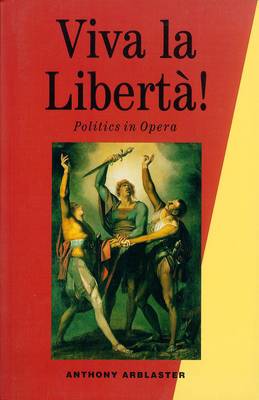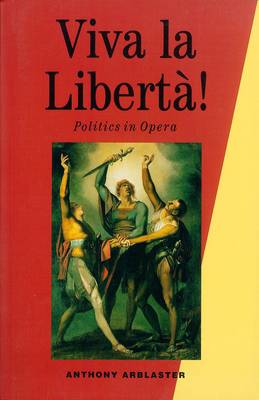
- Afhalen na 1 uur in een winkel met voorraad
- Gratis thuislevering in België vanaf € 30
- Ruim aanbod met 7 miljoen producten
- Afhalen na 1 uur in een winkel met voorraad
- Gratis thuislevering in België vanaf € 30
- Ruim aanbod met 7 miljoen producten
Zoeken
Omschrijving
In this ambitious and wide-ranging book, Anthony Arblaster shows that attempts by many music critics to disregard or disparage opera's politics are at best delusory, at worst a political ploy. Writing with passionate enthusiasm, both for opera and for th ideals of freedom it has so often represented, he uncovers the political dimensions of a vast range of works, from The Marriage of Figaro to Nixon in China. Beginning with an investigation of opera in revolutionary France, Anthony Arblaster goes on to analyse Mozart's enigmatic politics, and to explore the work of Rossini, Bellini, Donizetti and, above all, Verdi, in the context of the Risorgimento. Further chapters examine Wagner's early radicalism and notorious anti-semitism, nationalism in Russian, Czech and English opera, and the weaknesses of Puccini and Strauss. He also discusses the place of women in opera, and concludes with a fascinating survey of the treatment of everyday life in opera and musicals, from Dallapiccola to Sondheim.
Specificaties
Betrokkenen
- Auteur(s):
- Uitgeverij:
Inhoud
- Aantal bladzijden:
- 352
- Taal:
- Engels
Eigenschappen
- Productcode (EAN):
- 9780860916185
- Verschijningsdatum:
- 17/04/1997
- Uitvoering:
- Paperback
- Formaat:
- Trade paperback (VS)
- Afmetingen:
- 146 mm x 224 mm
- Gewicht:
- 521 g

Alleen bij Standaard Boekhandel
+ 62 punten op je klantenkaart van Standaard Boekhandel
Beoordelingen
We publiceren alleen reviews die voldoen aan de voorwaarden voor reviews. Bekijk onze voorwaarden voor reviews.











